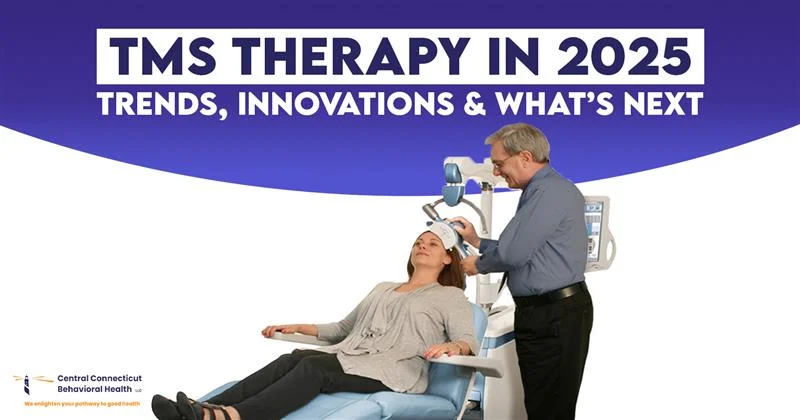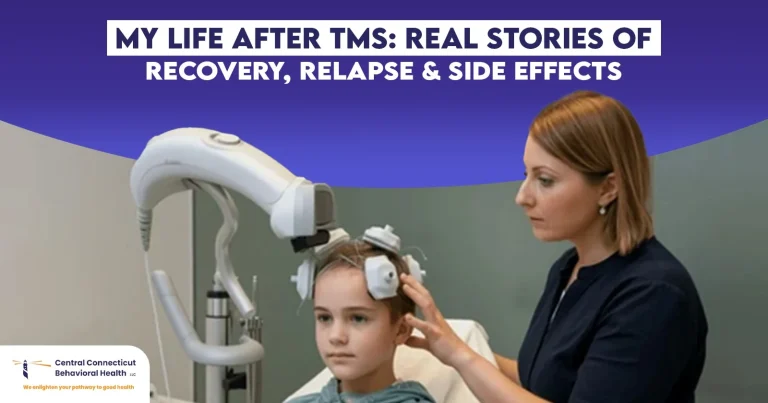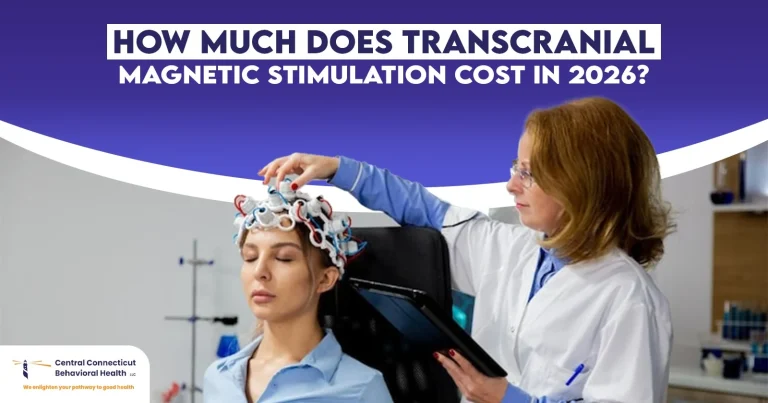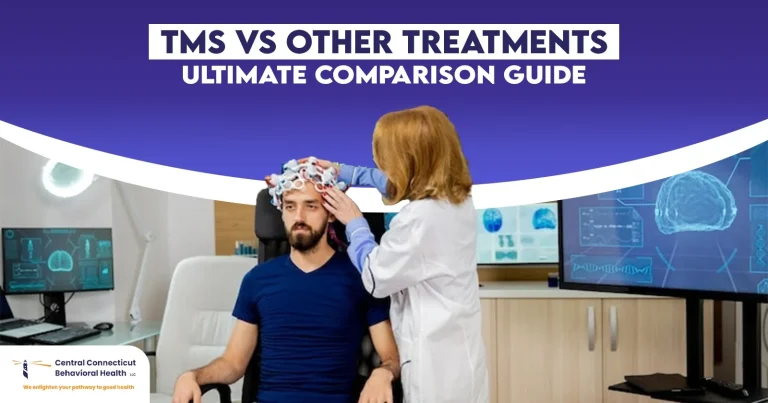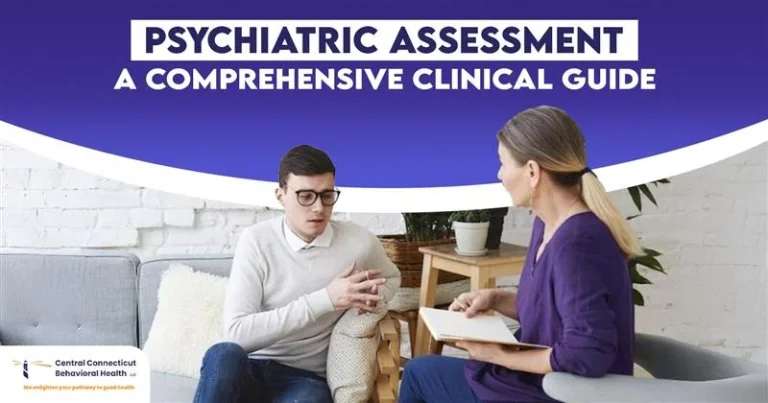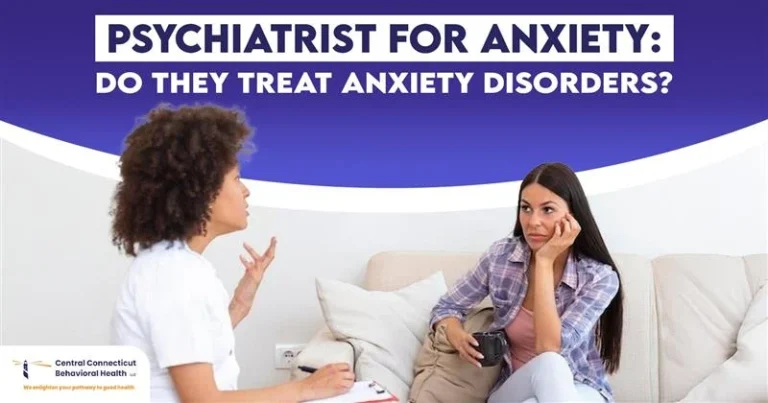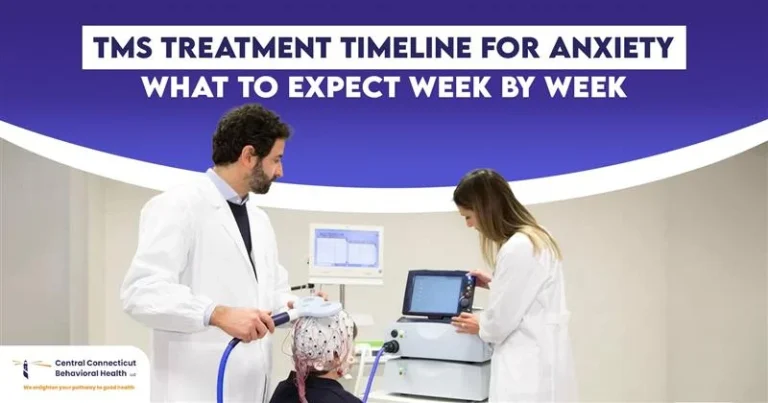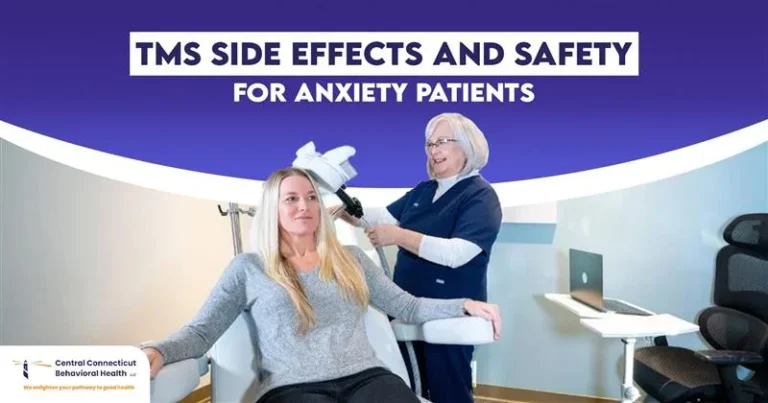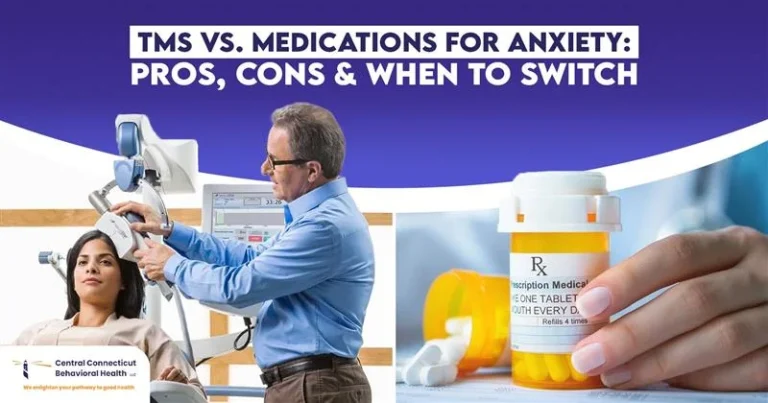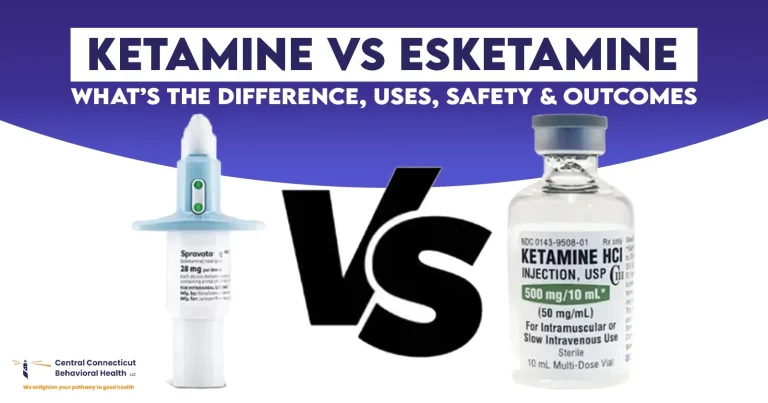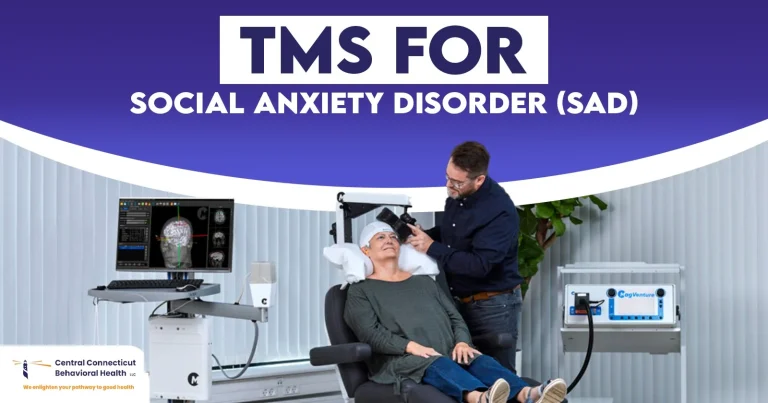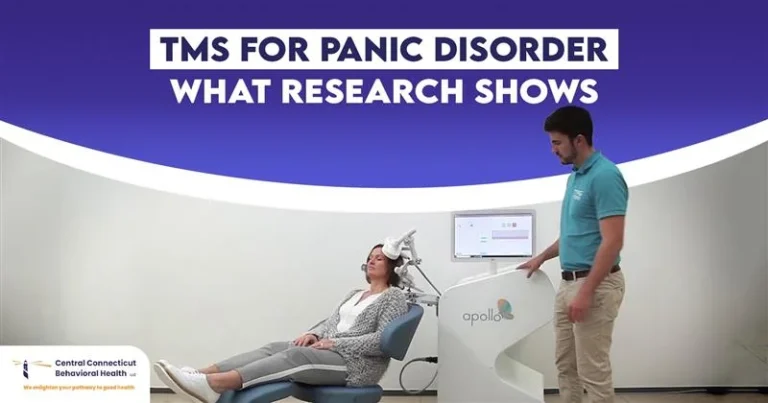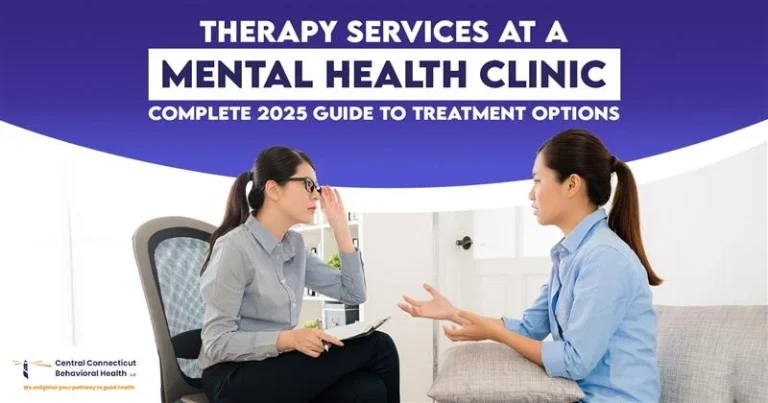Transcranial Magnetic Stimulation (TMS) treatment has emerged as one of the most promising things that has been created in the field of mental health, especially for those who have problems with depression, OCD, and anxiety. The TMS therapy is changing fast in 2025 as new standards of accuracy, accessibility, and success rates are introduced.
The area is changing the manner in which mental health conditions are addressed through AI-assisted targeting to home-based innovations. The TMS therapy takes center stage in this transformation in Connecticut, and specifically in Central Connecticut Behavioral Health. We shall discuss the recent trends, advances in TMS therapy, and how the TMS therapy is evolving and influencing mental health treatment in 2025 and beyond.
What Is TMS Therapy? A Quick Overview
TMS therapy is a non-invasive therapy involving magnetic pulses to stimulate nerve cells in particular parts of the brain associated with mood regulation. It works specifically well on individuals who have not reacted well to drugs or psychotherapy. TMS in the treatment of depression, OCD, and anxiety has proven to have incredible outcomes over the years as a glimmer of hope where standard therapy has failed.
Contrary to drugs, TMS does not have any systemic side effects, such as weight gain or fatigue. This renders it an attractive choice among the patients who want a safe and drug-free mental health service in the region of Central Connecticut.
TMS Therapy Trends in 2025
The year 2025 will be significant to the way TMS therapy is conducted and incorporated into clinical practice. The following trends in TMS therapy are the best:
-
AI and Personalized TMS Protocols
In 2025, artificial intelligence will change the TMS therapy. AI algorithms are now being used to map the activity in a patient’s brain and the most effective location of stimulation. This individualized practice will improve the results and reduce the time of treatment.
AI-guided TMS at Central Connecticut Behavioral Health makes sessions more tailored and thus more accurate in providing treatment to the treatment-resistant depression and anxiety disorder patients, thus improving their response rates.
-
Portable and Home-Based TMS Devices
Among the most captivating TMS therapy innovations in the year 2025, the invention of portable TMS devices is one of them. Such systems enable patients to have less-intensive maintenance treatments at home, under the supervision of the clinical unit. Even though this innovation is yet to be approved by the FDA, it may result in more affordable TMS, particularly among patients in rural Connecticut who struggle to attend clinics regularly.
-
Expanded Use Beyond Depression
TM therapy was originally used to treat major depressive disorder (MDD), but it is now used to address numerous different disorders, such as OCD, anxiety, PTSD, and even chronic pain. The potential cognitive enhancement and addiction recovery of it is being examined by researchers in 2025. This growth is an indicator of a time when TMS will be one of the important instruments in comprehensive mental health care.
-
Shorter, More Efficient Treatment Sessions
The historic TMS protocol involved 30 to 40-minute sessions that were done on a daily basis through 5 days a week, and a couple of weeks. With the introduction of new techniques, such as theta burst stimulation (TBS), it is now possible to accomplish sessions in just three minutes by not undermining the outcomes. This efficiency trend has made TMS therapy convenient and cost-effective for working people and students in Central Connecticut.
-
Integration with Psychotherapy and Medication Management
TMS therapy is currently being used together with psychotherapy approaches like Cognitive Behavioral Therapy (CBT) and mindfulness training by clinicians. The two treatments together increase neural plasticity and emotional regulation. This is a highly effective method with people with persistent anxiety or obsessive-compulsive symptoms.
TMS Therapy Innovations Driving 2025
Neuro-navigation and Real-Time Brain Mapping
The TMS systems will also be more guided by real-time MRI and EEG in the future (2025) to control the magnetic pulses. This is to make sure that the specific area of the brain is treated, the optimum therapeutic effect, as well as the least possible stimulation. These advancements have increased the success rate of TMS therapy in 2025, with increased remission rates for treatment-resistant depression.
Smart Monitoring and Progress Tracking
With wearable technology, clinicians can now check on the brain activities of their patients between sessions. Intelligent devices capture items such as sleep, mood, stress levels, and send them back into treatment algorithms. This fact-finding solution offers therapists at Central Connecticut Behavioral Health to modify therapy plans dynamically so that they guarantee the best improvements.
Combination with Neuromodulation Therapies
TMS has also been paired with other forms of neuromodulation, such as tDCS (transcranial direct current stimulation) and vagus nerve stimulation, to enhance the outcomes. Such hybrid types of treatment are likely to become the future of psychiatric care because they can treat some brain circuits at a time.
TMS Therapy Success Rate 2025: What the Data Shows
According to recent clinical reports of 2025, the success rates of TMS therapy have increased many times, particularly when targeting and adaptive stimulation are AI-guided.
- Depression: As many as 70 percent of patients complain of improved symptoms.
- Case: Approximately 60% will report a significant alleviation of obsessive thoughts and actions.
- Anxiety: More than 65 percent report fewer symptoms in the initial few weeks.
These statistics indicate the increased level of reliability of TMS therapy as one of the best evidence-based therapies used to treat mood and anxiety disorders.
TMS Therapy in Central Connecticut: Local Access and Care
Clinics such as Central Connecticut Behavioral Health are providing more access to TMS technologies by making them more advanced for residents of Central Connecticut. The emphasis of evidence-based care and innovation in the clinic means that the patients will have access to the latest TMS therapy trends and methods.
The clinic offers individualized care plans, whether it is for TMS of depression, TMS of OCD, or TMS of anxiety. Licensed professionals assist patients and pay close attention to their progress, and modify the protocols to obtain the best outcomes.
In the world of individuals who are seeking TMS treatment in Central Connecticut, this increased availability is a new dawn of easy and effective mental health care.
Does Insurance Cover New TMS Therapy Methods?
A significant increase in insurance coverage of TMS therapy in 2025. TMS has been recently introduced to most of the large insurance companies, such as Medicare, to treat depression and OCD on the condition of medical necessity. New protocols will be approved to cover anxiety and PTSD treatments as they are approved by the FDA.
Nonetheless, newer innovations of TMS, like home-based or AI-guided therapy, are not universally covered. Such clinics as Central Connecticut Behavioral Health help patients navigate the sphere of insurance, make dating with affordability, and transparency of treatment.
The Future of TMS Therapy: What’s Next?
The future of TMS treatment is so bright. As discoveries continue to be made in neuroscience and technology, TMS can become a personalized brain-care solution, and no longer a treatment.
It can be expected that the combination of AI, digital biomarkers, and portable systems can make TMS more efficient and accessible. By 2030, specialists estimate that TMS will not only be a second-line treatment to other psychiatric and neurological disorders, but also a primary one.
Final Thoughts
It is a beacon of hope and promise in the mental health care sector as we move into the future with TMS therapy in 2025. The technology is still changing lives with AI-driven personalization to much shorter and efficient sessions. In the case of Central Connecticut residents, high-quality, caring, and evidence-based care based on the latest TMS treatment is guaranteed by Central Connecticut Behavioral Health. Technology is indeed part of the future of TMS therapy, but more importantly, it is the power of the person to restore mental wellness with every magnetic pulse.
FAQs about TMS Therapy
How is TMS therapy different in 2025 from the past years?
TMS therapy has been more tailored and specific in 2025. In AI, brain mapping, and with better neuro-navigation, treatment plans are based on the activity of the brain of a specific patient, enhancing outcomes and simplifying the number of sessions.
Does TMS work in the treatment of other problems besides depression?
Yes, even though TMS was originally proven to be useful in major depressive disorder, it is currently demonstrated to be effective in OCD, anxiety, PTSD, and chronic pain. Continuing research is also proposing the possible application of advantages in terms of addiction recovery and cognitive enhancement.
What is the success rate of TMS therapy in 2025?
There is clinical evidence that 70 percent of patients improve depending on the severity of depression symptoms, and a considerable number of them attain remission. ODS and anxiety also have higher chances of success, owing to new methods of advanced targeting and combination therapy.
Are there innovations in the field of TMS therapy that are insurable?
TMS therapy for depression and OCD is now covered by most insurance providers, provided that medical necessity is established. Nonetheless, newer innovations, including home-based or AI-assisted TMS, might not be covered by the insurance company and policy based on the insurer.
What is the location of TMS therapy in Central Connecticut?
In case you are seeking reliable and modern TMS therapy in Central Connecticut Behavioral Health provides the state of art treatment methods at the hands of skilled professionals.


